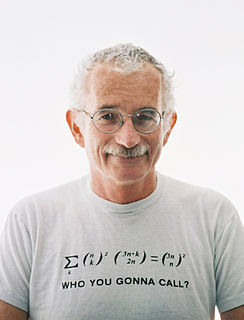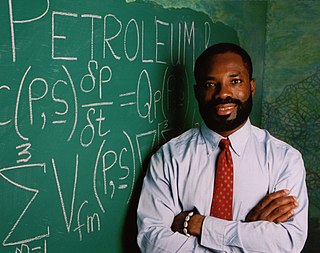A Quote by William Thurston
Mathematics is not about numbers, equations, computations, or algorithms: it is about understanding.
Quote Topics
Related Quotes
The question you raise, 'How can such a formulation lead to computations?' doesn't bother me in the least! Throughout my whole life as a mathematician, the possibility of making explicit, elegant computations has always come out by itself, as a byproduct of a thorough conceptual understanding of what was going on. Thus I never bothered about whether what would come out would be suitable for this or that, but just tried to understand - and it always turned out that understanding was all that mattered.
The power of equations lies in the philosophically difficult correspondence between mathematics, a collective creation of human minds, and an external physical reality. Equations model deep patterns in the outside world. By learning to value equations, and to read the stories they tell, we can uncover vital features of the world around us.
A mathematician either has a feeling for equations and an understanding and delight in it, not only in the purity of it, but in its beauty as well. I don't think that's something that you learn at school. I think you can get better in mathematics on a school level, but when you're talking about being a mathematician, I think that's definitely a gift of genes or whatever, you know? Whatever your pool is.
What is mathematics? Ask this question of person chosen at random, and you are likely to receive the answer "Mathematics is the study of number." With a bit of prodding as to what kind of study they mean, you may be able to induce them to come up with the description "the science of numbers." But that is about as far as you will get. And with that you will have obtained a description of mathematics that ceased to be accurate some two and a half thousand years ago!
Poetry is a sort of inspired mathematics, which gives us equations, not for abstract figures, triangles, squares, and the like, but for the human emotions. If one has a mind which inclines to magic rather than science, one will prefer to speak of these equations as spells or incantations; it sounds more arcane, mysterious, recondite.
Einstein had looked at the numbers and dimensions that went into his equations for gravitational waves and said, essentially, 'This is so tiny that it will never have any influence on anything, and nobody can measure it.' And when you think about the times and the technology in 1916, he was probably right.





































